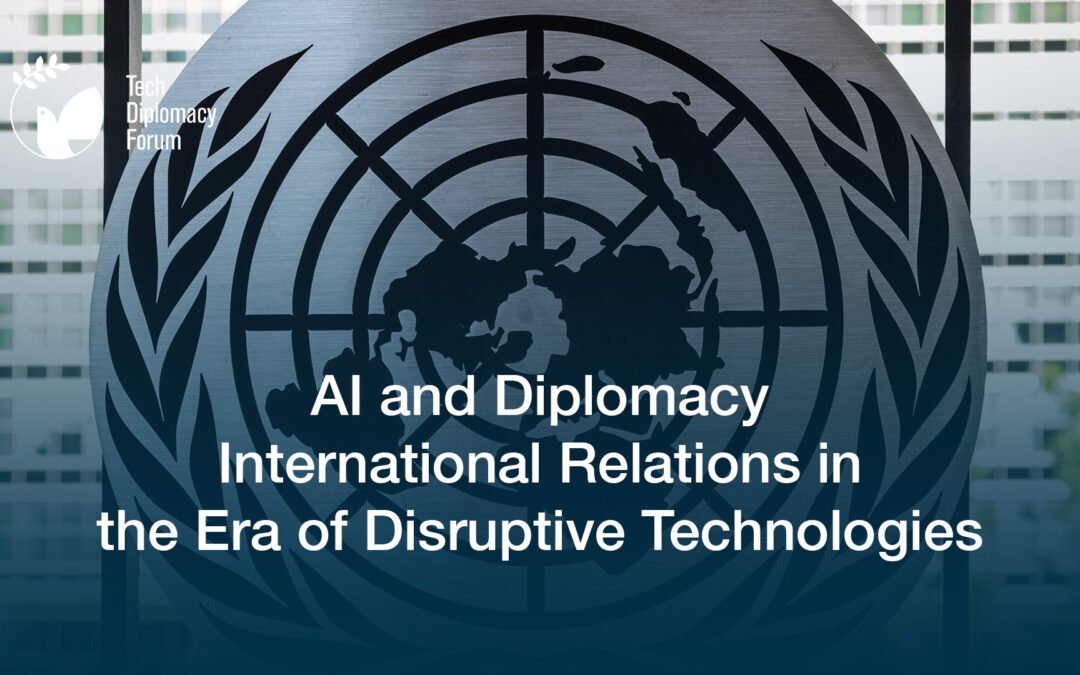Introduction
Artificial intelligence (AI) and disruptive digital technologies are fundamentally transforming the landscape of international relations and diplomacy. The SELA report (2024) provides a comprehensive analysis of how these technologies are reshaping power dynamics, regulatory frameworks, and the very nature of diplomatic engagement. This article distills key insights from the report, highlighting both the opportunities and challenges for governments, regional organizations, and the private sector.
The New Global Order: Tech Giants and State Actors
AI has elevated technology companies—especially those based in the United States and China—to the status of global actors with economic power rivaling that of nation-states (SELA, 2024). Their influence extends beyond commerce into politics, security, and even the shaping of international norms. As a result, the traditional Westphalian system, based on state sovereignty, is increasingly complemented (and sometimes challenged) by a “World Tech Order” where non-state actors play pivotal roles.
This shift is evident in the emergence of tech diplomacy, or “techplomacy,” as a strategic foreign policy tool. Countries such as Denmark, Australia, France, Germany, Switzerland, and Estonia have established dedicated tech ambassadors and digital foreign policy strategies to engage with these new geopolitical actors (SELA, 2024).
Regional Perspectives: Europe, Latin America, and Beyond
European Union (EU):
The EU has taken a proactive stance on AI regulation, culminating in the Artificial Intelligence Act (AIA), which establishes a risk-based framework for AI systems (Beltrame de Moura, 2024). The AIA sets global precedents for ethical, safe, and human-centric AI, with extraterritorial effects that influence global tech governance.
Latin America and the Caribbean (LAC):
LAC countries are leveraging their strategic position in the multipolar order to foster diplomatic, commercial, and political relations with a diverse set of global actors. The region is advancing digital cooperation with the EU through initiatives such as the EU-LAC Digital Alliance and the Global Gateway, which aim to bridge the digital divide, promote innovation, and support inclusive development (González Hernández, 2024).
Recent milestones, such as the “Declaration of Cartagena de Indias for the Governance, the Building of Artificial Intelligence (AI) Ecosystems and the Promotion of Ethical and Responsible AI Education in Latin America and the Caribbean,” underscore the region’s commitment to ethical AI, digital education, and collaborative governance (SELA, 2024).
Tech Diplomacy: Paradigm Shift in International Relations
The report identifies techplomacy as a paradigm shift, moving diplomacy beyond traditional state-to-state interactions to include engagement with tech companies, civil society, and multilateral organizations. Key elements of this new paradigm include:
-
Multi-actor Governance: Diplomacy now involves states, tech corporations, NGOs, and regional organizations in shaping digital norms and standards.
-
Regulatory Innovation: The EU’s risk-based AI regulation model is influencing global approaches, with regulatory sandboxes supporting responsible innovation.
-
Regional Integration: Initiatives like the EU-LAC Digital Alliance exemplify how regional cooperation can address digital divides and foster shared prosperity.
-
Ethical and Security Challenges: AI introduces new risks, including cybersecurity threats, disinformation, and ethical dilemmas in areas such as automated decision-making and military applications.
Opportunities and Risks
AI offers significant opportunities to enhance diplomatic effectiveness, from data-driven decision-making to improved crisis response and public diplomacy. However, the risks are equally profound. Without inclusive governance and robust regulation, AI could exacerbate inequalities, threaten privacy, and destabilize international security (Herrera, 2024).
The report stresses the importance of building digital infrastructure, investing in digital literacy, and ensuring that regulatory frameworks are both flexible and enforceable. Cooperation between developed and developing regions is essential to prevent a deepening of the global digital divide.
Conclusion
AI and disruptive technologies are not just tools—they are reshaping the very fabric of international relations. The SELA report (2024) demonstrates that techplomacy is now central to global governance, requiring new forms of engagement, regulation, and cooperation. The challenge for diplomats, policymakers, and business leaders is to harness the benefits of AI while safeguarding fundamental rights, promoting inclusivity, and ensuring global security.
References
Beltrame de Moura, A. (2024). Artificial intelligence and regional integration organisations: EU AI Act. In SELA, Artificial Intelligence and Diplomacy: International relations in the era of disruptive technologies.
González Hernández, H. (2024). Digital cooperation of Latin America and the Caribbean with the European Union: Challenges and opportunities of bi-regional agenda. In SELA, Artificial Intelligence and Diplomacy: International relations in the era of disruptive technologies.
Herrera, G. (2024). Global governance in the era of artificial intelligence from the perspective of international relations. In SELA, Artificial Intelligence and Diplomacy: International relations in the era of disruptive technologies.
Latin American and Caribbean Economic System (SELA). (2024). Artificial Intelligence and Diplomacy: International relations in the era of disruptive technologies. www.sela.org
Published at the Tech Diplomacy Forum
Based on: Latin American and Caribbean Economic System (SELA). (2024). Artificial Intelligence and Diplomacy: International relations in the era of disruptive technologies.

